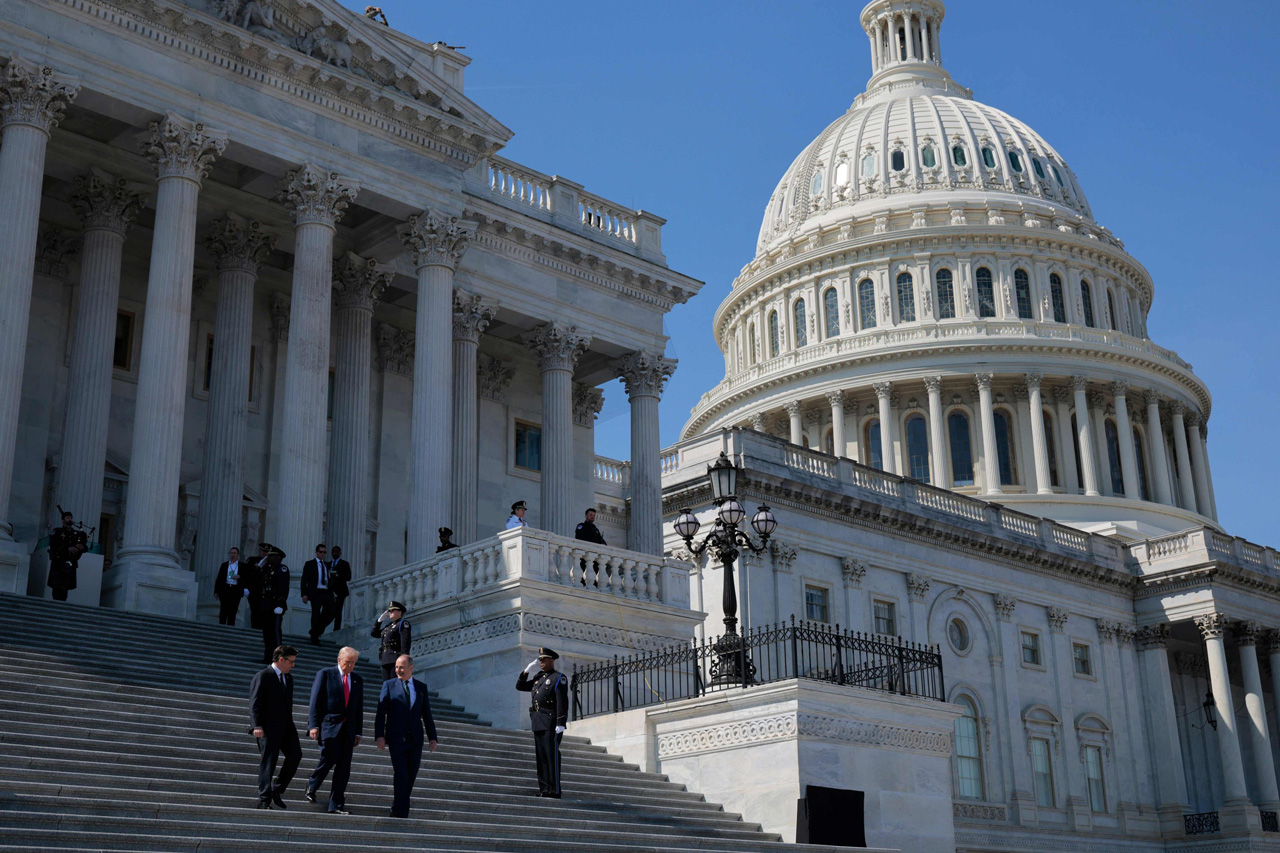Looking at the final 20 days of the Trump administration, it is not an exaggeration to say that the U.S. was swiftly moving from a rejection of global leadership to a sharp exit from the international system. Trump, whose actions were unsurprising given his campaign promises, waged a war to hollow out federal agencies while simultaneously dismantling institutions that held America's claim to leadership in the international system. These steps, which weakened both the federal government and Washington's ability to produce global strategies, can be seen as signs of America's break from the international system. The Trump administration ended most international aid, with exceptions for Israel and Egypt, withdrew from international agreements, punished allies, made territorial annexation threats, and proposed ethnic cleansing, sending the message that the 'rules-based' international order was coming to an end.
Liberal Capitalism Did Not Bring Democracy
After World War II, America led the liberal capitalist democratic West as one of the two superpowers. As the victor of the war, America helped rebuild Europe while fighting a global battle against the communist Soviets. Once it won the Cold War, America began to guide global politics as the sole superpower. At this stage, America, which presented itself as a 'reluctant power' not wishing to become the world's police, was content to declare victory for the liberal capitalist order, rather than creating a new international system. Washington, which argued that the world would democratize by adopting the liberal capitalist system with no alternative, did not foresee a multipolar world forming.
With this confidence, Washington was not hesitant to include China in the system, believing that the liberalization of closed systems would bring democracy and freedoms. This critical step had the long-term effect of triggering American nationalist populism. Through the technological revolution, American capitalists moved manufacturing and employment to China and Asia, which had much lower costs, and promoted globalization by arguing that capital and labor should not be confined by national borders. As a result, the American working class was increasingly pushed outside the system, a development that did not trouble either capitalists or politicians. Those who believed that the spread of liberal capitalism would bring democracy were neither proven correct nor able to prevent the destructive socio-economic consequences of shifting employment to Asia.
9/11 and America's 'Dumbing Down'
Perhaps the greatest attack on American liberal capitalism occurred on September 11, 2001, when the Bush administration's response was to declare a 'war on terror.' As one of the White House officials from that period later stated, 9/11 'dumbed down' America, as Washington chose to perceive the event as more than a terrorist attack that required finding and punishing its perpetrators. Launching a full-scale war against an unclear strategic target was hardly a rational choice. Instead of using the global sympathy following 9/11 to build a new international system, the Bush administration used it as political capital to invade Afghanistan and Iraq, squandering an important opportunity. By advocating for the spread of democracy, even through invasion and force, America quickly wasted the sympathy created by 9/11.
After the September 11 attacks, America, unable to formulate a founding strategy, resorted to reactive and reckless uses of force, and could not escape the equation of economic crises and war. As America grew weary from wars and economic crises, and as parts of its population suffered from unemployment, drugs, and socio-economic collapse, they became deeply distrustful and angry at the system. Whether Democrat or Republican, voters turned to populist and nationalist candidates such as Barack Obama, Bernie Sanders, Sarah Palin, and Trump, rejecting the establishment figures like Hillary Clinton, John McCain, and Mitt Romney. Trump's ability to mobilize disaffected voters through populist and nationalist rhetoric led to his victory over Jeb Bush, who was associated with the Iraq War, and Hillary Clinton, seen as an advocate of liberal interventionism and globalization.
America's Break and the End of the System
Biden’s efforts to return America to international leadership, through aid to Ukraine and unlimited support for Israel, were interpreted by the public as a detachment from America's own issues. As millions of refugees entered the country and inflation spiraled out of control, spending billions of dollars on 'other people's wars' became the most recent example of liberal priorities gone wrong in the eyes of voters. Trump's question, 'Why are we protecting other people's borders when we can't protect our own?' resonated with many. Since taking office, Trump has cut foreign aid and sought to end international responsibilities, quickly abandoning America's claim to global leadership in order to fulfill his 'America First' promise.
An important question now is whether the international system can survive a second Trump term. Having faced significant resistance during his first term, Trump would likely act even more decisively and effectively during his second. Whether the next president will follow Biden’s approach and attempt to return to the system is unclear. However, we can confidently say that America’s relationship with the international system it led for the past seventy years will be largely reshaped. It is uncertain how this new relationship will form or what opportunities and threats it will create in the international system. But given his rhetoric on Canada, Panama, Greenland, and Gaza, it appears that Trump's foreign policy vision includes expanding American territory through force, annexation, purchase, and ethnic cleansing. If this rhetoric is put into action, it would signal the end of the international system that America had a large hand in creating and leading.







